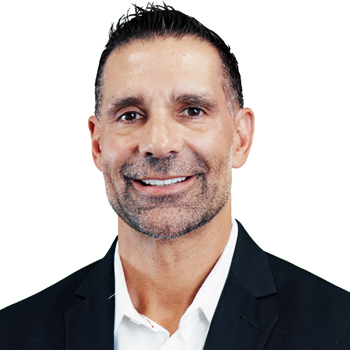Select your time!
My Account
Mental Health

Brain & Cognitive Health
What is Mental Health?
When people become motivated to improve their health, they typically focus on physical health and rarely consider the importance of mental health. We choose to invest in the outside of our body, because this is what people see and this is the message that our media outlets focus on. Weight loss and exercise are the first considerations when deciding to become healthier. Although these are important commitments and can contribute to mental health, there is so much more to consider.
Mental health refers to our cognitive, behavioral, and emotional wellbeing – it is all about how we think, feel, and behave. The term 'mental health' is sometimes used to mean an absence of a mental disorder, but sometimes the diagnosis of a mental disorder can be difficult and confusing. It is important to understand that your mental health affects daily life, relationships and physical health. Although the term mental health is commonly associated only as psychological, many conditions that are recognized as mental disorders have physical roots. This provides opportunities to treat and support mental health with non-traditional pharmaceuticals.
According to the World Health Organization (WHO):
“Mental health is a state of well-being in which an individual realizes his or her own abilities, can cope with the normal stresses of life, can work productively, and is able to make a contribution to his or her community.”
This statement shows that mental health is more than just the absence of mental disorders or disabilities and more about happiness and well-being. We cannot overlook mental health if we aim to preserve a person’s ability to enjoy life. Conditions such as stress, depression, and anxiety can all affect mental health and disrupt a person’s routine. This can progress rapidly if not identified and managed.
Type of Mental Illness
Types of mental illness:
- Mood disorders (such as depression or bipolar disorder)
- Anxiety disorders
- Personality disorders
- Psychotic disorders (such as schizophrenia)
- Eating disorders
- Post-traumatic stress disorder (PTSD)
- Substance abuse disorders
Physical health conditions that can mimic or affect mental illness:
- Over or underactive thyroid
- Diabetes
- High cortisol levels
- Irritable or inflammatory bowel disease
- Chronic fatigue syndrome
- Micronutrient deficiencies
- Alzheimer’s disease
- Allergies
- Certain cancers
- Sleep irregularities including sleep apnea
- Lyme disease
- Autoimmune diseases
- Other hormone imbalances
Can It Be Treated?
Traditional medical management of mental health is dominated by the over prescribing of psychiatric medications. Mental health is the most poorly managed medical specialty in healthcare and is a major contributor to societies declining health. The diagnosis of mental health disorders is at an all-time high and in most cases the medications being prescribed only act as “Band-Aids” to reduce symptoms without opportunities for improvements and a long list of side effects that at times are worse than the mental illness.
The side effects of the medications cause people to refrain from treatment leaving them self-medicating with illicit drugs or struggling to get by with no treatment at all. Medications don’t lead to cures or permanent solutions, but rather provide relief of symptoms and sometimes long-term stability –there are more options available for mental health.
Non pharmaceutical support for mental health include:
- Getting professional help especially if any suicidal thoughts
- Consider less communication through electronics
- Focus on relationships and direct contact
- Staying positive
- Maximize lifestyle – sleep, diet and exercise (these are free)
- Helping others
- Stress management – coping skills
Many cases of mental illness are caused or exacerbated by physical conditions, which expand our opportunity for treatment. Beyond traditional medical therapies there are also several research-supported alternative or wellness based therapies that can have a major impact on both disease treatment and prevention.
Alternative Therapies
Alternative therapies to help prevent and treat physical causes of mental illness:
- Maximizing health of the nervous system
- Enhancing the immune system
- Improving mitochondria function
- Improving insulin sensitivity
- Reducing inflammation
- Reducing body fat
- Increasing lean muscle mass
- Improving sleep
- Improving blood flow to the body and brain
Many cases of mental illness are caused or exacerbated by physical conditions, which expand our opportunity for treatment. Beyond traditional medical therapies there are also several research-supported alternative or wellness based therapies that can have a major impact on both disease treatment and prevention.
It’s Not All Physical - The Importance of Mental Health.

 US-Licensed Medical Providers & Pharmacies
US-Licensed Medical Providers & Pharmacies
